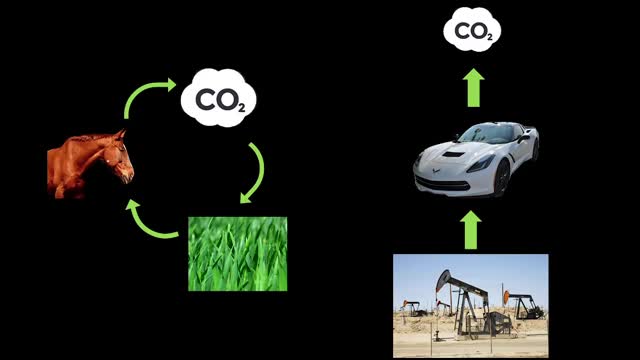Premium Only Content

Are electric cars the answer to climate change?
This talk will challenge the popular perception that Battery Electric Vehicles (BEVs) are environmentally friendly, and will argue that we are inappropriately rushing the market introduction of these vehicles. BEVs are commonly sold under the guise of being ‘Zero Emissions,’ an assertion that is not true by any definition. Brake pads produce emissions, as do
tires and even interiors under sunlight. The electricity that powers BEVs is generated by power plants, 64% of which burn fossil fuels in the U.S.—fossil fuels that contribute to greenhouse gas emissions and global warming. Even more importantly, there are significant CO2 emissions
created during the manufacture of the battery pack, meaning that in order to offset the carbon created during the production process, a BEV must drive 40,000 - 100,000 miles before being environmentally comparable to a gasoline-powered vehicle. Hybrid vehicles, on the other hand,
which combine much smaller batteries with efficient internal combustion engines, have been shown to be a much better option for lowering global CO2. Unfortunately, they do not receive the same marketable ‘kudos’ or policy backing as full BEVs. We are headed down the wrong path by
rolling out BEVs before making the manufacturing and electricity generation CO2 neutral. Dr. Graham Conway is a Principal Engineer in the Automotive Division at Southwest Research Institute. For the last ten years he has been immersed in evaluating automotive technologies and consulting for car companies and suppliers. This gives him unique insights and perspectives on the industry. He is passionate about making vehicles more efficient to ensure the future of the planet and has a message to share about some common misconceptions about electric and non-electric vehicles. This talk was given at a TEDx event using the TED conference format but independently organized by a local community.
-
 1:01:18
1:01:18
The Flame USA
2 months agoLand grabs, Money manipulation, Weather wars? Government overreach Alan Myer | EP117
208 -
 8:16:19
8:16:19
Joe Donuts Gaming
10 hours ago🟢Fortnite Live : Chill Vibes Lounge!
36.1K4 -
 38:43
38:43
Standpoint with Gabe Groisman
6 hours agoEp. 63. Terror Strikes the Nova Music Festival. Ofir Amir
93.5K33 -
 36:04
36:04
Forrest Galante
16 hours agoPrivate Tour of an Indian Billionaire’s Secret Wildlife Rescue Center
71.4K12 -
 9:37
9:37
Space Ice
1 day agoMorbius Is The Perfect Movie, Everyone Just Lied To You - Best Movie Ever
68.8K27 -
 17:09
17:09
Guns & Gadgets 2nd Amendment News
1 day agoWhy I Left The USCCA
41.5K37 -
 21:33
21:33
Degenerate Jay
2 days ago $2.50 earnedThe Best Video Game Movie Ever Made? Sonic The Hedgehog 3 Movie Review
44.3K1 -
 19:57
19:57
BlackDiamondGunsandGear
4 days agoIS 22LR ENOUGH?
72.5K25 -
 1:59:47
1:59:47
Anthony Rogers
23 hours agoLIVE Comedy @ Cusumano's Pizza (Upstairs)
48.3K2 -
 5:02:46
5:02:46
MoFio23!
20 hours agoNintendo Switch It UP Saturdays with The Fellas: LIVE - Episode #1
123K15